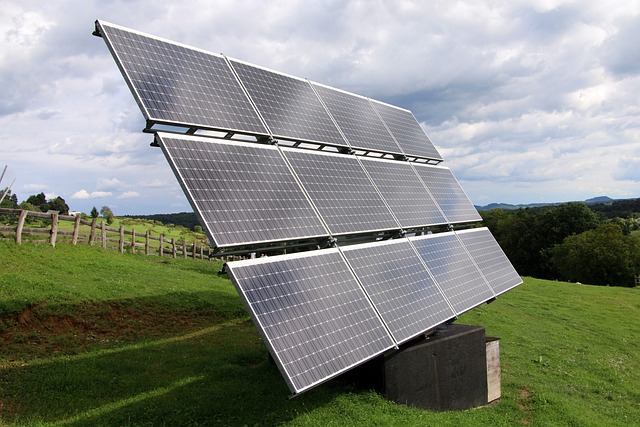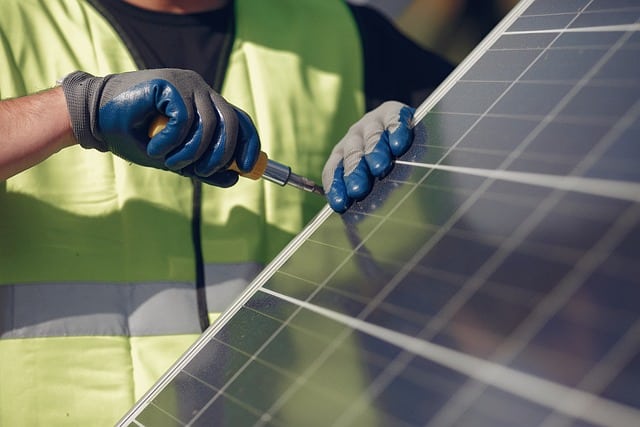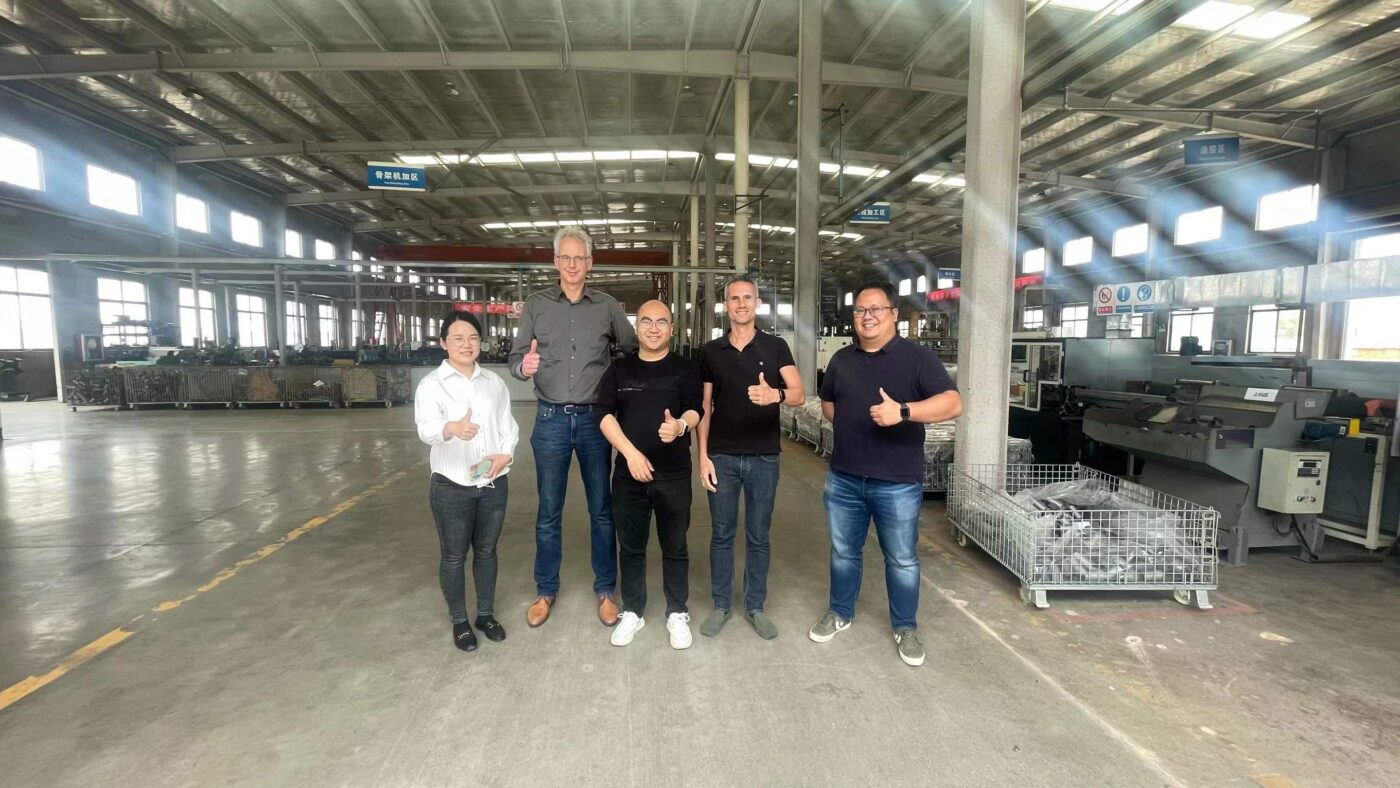최근에는, 태양 전지판은 비용 효율성과 낮은 환경 영향으로 인해 점점 인기를 얻고 있습니다.. 일반적으로 우리는 설치를하기 위해 전문가 또는 일반 계약자를 고용합니다., 그러나 태양 전지판 설치 과정을 알고 있다면, 당신은 직접하기로 결정할 수도 있습니다. 이 기사는 태양 전지판을 설치할시기와 태양 전지판 설치에 필요한 재료를 보여주고 태양 전지판을 설치하는 방법을 안내합니다., 원 스톱 솔루션을 제공합니다.

태양 전지판을 설치할 때
연중 언제든지 태양 전지판을 설치할 수 있습니다.. 하지만, 기상 조건은 일반적으로 설치 과정에 영향을 미칩니다. 비가 오면, 바람이나 눈, 안전상의 이유로, 설치 프로세스를 지연하십시오.
태양 전지판을 단계별로 설치하는 방법
집의 적합성 및 에너지 요구를 평가하는 것, 규정 준수 및 라이센스 절차에, 태양 광 패널 설치에 필요한 시스템 설계 및 선택 재료에, 계획하는 방법을 단계별로 보여줍니다, 장비를 선택하는 방법, 태양 전지판을 설치하는 방법, 태양 전지판을 그리드에 어떻게 연결합니까?. 태양 에너지를 처음 접하거나 더 심층적 인 전문 정보를 찾고 있는지 여부, 이 기사는 태양 전지판을 단계별로 설치하는 방법을 알려줍니다..
단계 1: 태양열 설치 계획 & 안전
호환성을 결정하십시오
첫째로, 집의 적합성을 확인해야합니다, 지붕 구조 확인, 태양 전지판 설치에 적합한 방향 및 바닥 공간. 당신은 당신의 집이 일년 내내 얼마나 많은 햇빛을 받는지 미리 알고 싶을 것입니다.. 햇빛이 긴 영역은 일반적으로 더 많은 전기를 생산하며 태양 전지판 효율의 핵심 요소입니다..
에너지 요구를 평가하십시오
지난 한 해 동안 평균 전기 사용량을 고려하여 필요한 태양계의 크기와 미래에 예상되는 변화를 고려하여 에너지 요구를 결정합니다.. 또한 더 많은 에너지를 만들어 공급 업체에게 다시 판매하여 차이를 얻을 수 있습니다..
지붕 상태
태양 전지판을 설치하기 전에, 지붕이 상태가 양호하고 지붕이 태양 전지판 시스템의 무게를 가질 수있는 충분한 구조적 무결성을 가지고 있는지 확인해야합니다.. 이것은 일반적으로 전문가가 평가합니다.
허가를 받으십시오
태양 전지판 설치에는 이해하고 준수 해야하는 여러 가지 법적 및 규제 요구 사항이 포함됩니다.. 현지 법률 및 규정을 확인한 후, 관련 라이센스 신청을 시작할 수 있습니다. 일반적으로 말하면, 허가 승인을 기다리는 대기 및 후속 검사는 시간이 많이 걸리는 과정입니다..
안전 고려 사항
설치 전, 우리는 일련의 안전 문제를 고려해야합니다, 그리고 안전을 보장하는 것이 중요합니다. 안전 장비 및 보호 조치를 미리 준비하십시오, 높이에서 일할 때 적절한 방지 조치를 취하십시오. 모든 운영 및 엄격한 안전 표준 준수를 보장하기 위해 장비 및 시스템에 대한 안전 점검을 수행합니다..
단계 2: 태양 전지판 설치에 필요한 도구 및 재료
태양 전지판 설치에 필요한 재료 및 도구는 요구와 위치에 따라 크게 다릅니다., 따라서 올바른 고품질 장비 및 도구를 선택하는 것이 시스템의 장기 효율적인 작동을 보장하는 데 중요합니다.. 구매하기 전에, 장비 및 도구의 성능 평가 및 표준 인증을 수행해야합니다., 유명한 제조업체를 선택하십시오. 구매 과정에서, 장비 및 도구의 구매 비용을 고려해야 할뿐만 아니라, 또한 장기 운영 및 유지 보수 비용. 현지 태양 보조금 및 인센티브에 대해 미리 알면 투자 비용을 줄이는 데 도움이 될 수 있습니다..
태양 전지판 설치에 필요한 도구
- 손 송곳 또는 전기 드라이버
- 손 톱 또는 전기 톱
- 측정 도구 (줄자와 같은, 수준, 등.)
- 연필 또는 마커
- 와이어 스트리핑 플라이어
- 와이어 플라이어
- 용접 도구 (용접 철과 같은, 솔더, 등.)
- 하드 모자, 장갑과 고글
- 사다리 또는 비계
태양 전지판 설치에 필요한 자료
- 태양 전지 패널
- 브래킷 또는지지 프레임
- 패널 브래킷 장착 볼트 및 너트
- 배터리 보드 케이블
- 전선
- 와이어 커넥터 및 플러그
- 배터리 팩 (선택 과목)
- 인버터 (선택 과목)
- 배터리 팩 및 인버터 용 장착 브래킷 및 나사

단계 3: 설치 프로세스
장착 브래킷
지붕과지면에 따라 적절한 괄호를 선택하십시오., 에너지 수집 효율성을 향상시키기 위해 태양 전지판이 최대한까지 태양에 노출되도록 브래킷을 정확하게 배치하십시오., 측정 및 표시 후 지침에 따라 브래킷 시스템을 설치하십시오..
배터리 패널을 설치하십시오
첫 번째, 괄호에 태양 전지판을 장착하여 적절한 비품으로 제자리에 고정하십시오.. 그런 다음 패널 사이에 케이블을 연결하십시오, 연결이 안전하고 전기 표준을 충족하는지 확인.
라디에이터를 설치하십시오
태양 전지판 주위에 설치할 올바른 유형과 라디에이터 크기를 선택하십시오.. 라디에이터의 기능은 태양 전지판에 의해 생성 된 열을 줄임으로써 패널을 적절한 온도에서 유지하는 것입니다., 따라서 시스템의 장기 안정적인 작동을 보장합니다.
충전 컨트롤러를 설치하십시오
다음, 충전 컨트롤러를 설치하십시오. 충전 컨트롤러의 역할은 태양 전지판에 의해 생성 된 전기 흐름을 관리하고 전기 연결을 만드는 것입니다.. 태양 전지판과 배터리 팩 사이에 충전 컨트롤러를 설치해야합니다., 과하 처리 및 과다 분비를 방지하기 위해 매개 변수를 설정할 수 있습니다..
배터리 팩을 설치하십시오
배터리 팩은 태양 전지판으로 생성 된 전기를 저장하는 데있어 핵심 구성 요소이며 과도한 전기를 생성 할 수 있습니다.. 적절한 위치에 설치하고 충전 컨트롤러에 연결하십시오.. 과열을 방지하기 위해 배터리 팩이 안전하게 고정되고 환기가 잘되어 있는지 확인해야합니다..
단계 4: 태양 전지판을 어떻게 연결합니까?
인버터 설치
태양 전지판과 배터리의 전력은 직류이기 때문에, 홈 배선에서 사용하기 전에 교대 전류로 변환해야합니다.. 그러므로, 전원 인버터를 설치해야합니다. 인버터는 일반적으로 전력 전송 손실을 줄이기 위해 태양 전지판 및 배터리 뱅크 근처에 설치됩니다.. 또한, 케이블 길이를 줄임으로써 시스템 효율성을 높이기 위해 배터리 팩 및 전력 액세스 포인트에 가까운 위치를 선택하십시오.. 설치 위치는 인버터의 정상적인 작동과 수명을 보장하기 위해 가능한 한 습하고 고온 환경에서 멀어야합니다..
미터를 설치하십시오
미터는 일반적으로 인버터 및 전력 액세스 포인트 근처에 있습니다.. 미터가 설치된 후, 시스템에서 생성 된 전력을 정확하게 측정하기 위해 매개 변수화되고 보정됩니다..
전기 연결
올바른 연결 지점을 결정하십시오, 일반적으로 인버터와 관련이 있습니다, 배터리 뱅크 및 미터. 그런 다음 지침에 따라 DC 및 AC 케이블을 올바르게 연결하여 전기 연결이 안전 표준 및 규정을 준수하는지 확인하십시오.. 마지막으로, 시스템의 다양한 구성 요소간에 적절한 연결을 보장하기 위해 포괄적 인 전기 테스트가 수행됩니다., 궁극적으로 태양계의 효율적인 작동을 보장합니다.
단계 5: 유지 보수 및 보조금
태양 전지 패널 유지 보수
태양 전지 패널 유지 보수는 매우 간단합니다. 패널 표면을 정기적으로 청소하고 케이블과 연결을 확인하여 제대로 작동하는지 확인하면됩니다..
인센티브는 장소마다 다릅니다, 태양열 투자를 최대한 활용합니다. 설치를 시작하기 전에, 이러한 인센티브를 탐색 할 수 있으며 세금 공제를 얻을 수 있습니다., 리베이트, 또는 비용을 상쇄하기 위해 여러 출처의 보조금. 전반적인, 이를 통해 프로젝트는 대출로 자금을 지원할 수 있습니다.. 게다가, 또한 태양계의 건설 및 유지 보수에 대한 재정적 지원을 제공하기 위해 지역 정책 보조금에 대해 배워야합니다..
결론
태양 전지판 설치는 환경에 긍정적으로 기여할뿐만 아니라 지속 가능한 결정입니다., 그러나 재정적으로 실행 가능한 투자이기도합니다. 이 궁극적 인 가이드의 단계와 조언에 따라, 태양 전지판 설치에 필요한 자료에 대해 배웠습니다., 뿐만 아니라 태양 전지판을 어떻게 연결하고 태양 전지판을 설치하여 태양 에너지를 최대한 활용하는 방법.
기술적 인 도전이 필요하다고 느끼는 경우, 전문 태양열 설치 서비스를 찾는 것이 좋습니다. GYCX Solar는 종합적인 태양 광 제품을 제공합니다, 개인화 된 지침, 그리고 훌륭한 서비스 비즈니스 요구에 맞는 올바른 태양 솔루션을 찾을 수 있도록. 문의하기 오늘날 우리의 태양 광 제품에 대한 자세한 내용과 우리가 재생 가능한 에너지로 비즈니스를 번창하도록 도울 수있는 방법.

태양 전지판 설치 FAQ
태양 전지판은 어떻게 작동합니까??
태양 전지판은 하루 종일 태양 에너지를 흡수하여 직류로 변환합니다.. 광전지 효과에 따라 작동합니다, 그리고 대부분의 주택과 사업체는 교대 현재로 운영됩니다 (교류), 인버터가 DC 전원을 사용 가능한 AC 전원으로 변환해야합니다..
내 태양 전지판이 햇빛이 없을 때 전기를 생성 할 것인가?
태양 전지판으로 생산되는 전기의 양은 햇빛에 따라 다릅니다., 그리고 낮에는 햇빛이 없을 때, 태양 전지판은 더 적은 에너지를 생산합니다. 이 문제를 해결합니다, 태양계에는 전기 에너지를 저장할 수있는 배터리 팩이 장착되어 있습니다.. 배터리에 과도한 전기 에너지를 저장하고 햇빛이 없을 때 시스템에 공급하십시오..
태양 전지판이있는 경우, 여전히 전기 요금을받을 것입니다?
당신은 여전히 전기 요금이 있습니다, 그러나 태양 전지판 시스템이 있습니다, 에너지 요금이 크게 줄어들 수 있습니다.
정전 중에 태양 전지판이 작동합니다?
태양 전지판 시스템이 그리드에 연결된 경우, 정전 중에 폐쇄됩니다. 정전시 백업 전력을 제공하기 위해 구입할 수있는 특정 인버터가 있습니다..
태양 전지판을 유지하는 데 드는 비용은 얼마입니까??
태양 전지판은 비교적 유지 보수가 적으며 일반적으로 유지 보수가 거의 필요하지 않습니다. 25 에게 35 수년간의 전기를 생산합니다. 특정 유지 보수 비용은 시스템의 크기 및 구성에 따라 다릅니다., 따라서 정확한 비용 견적을 얻으려면 사전에 태양계 설치 프로그램 또는 유지 보수 서비스 제공 업체에 문의하는 것이 좋습니다..
태양 전지판에 눈이 있으면 어떻게됩니까??
패널이 눈으로 덮여있는 경우, 태양 전지판은 햇빛을 모을 수 없습니다, 따라서 전기를 생산할 수 없습니다. 현실은 대부분의 패널이 눈이 내리는 각도로 기울어진다는 것입니다., 그리고 그것이 눈이 쌓이면, 패널을 청소해야합니다.
태양 전지판을 단계별로 설치하는 방법?
우리의 단계별 가이드는 태양 전지판을 설치하는 방법에 대해 자세히 설명합니다. 그만큼 10 단계는 다음과 같습니다: 프로젝트를 계획하십시오, 선반 시스템을 설치하십시오, 태양 전지판을 설치하십시오, 라디에이터를 설치하십시오, 충전 컨트롤러를 설치하십시오, 배터리를 설치하십시오, 인버터를 설치하십시오. 에너지 미터를 설치하십시오. 전기 배선 및 완전한 검사를 설정하십시오. 배전반을 전원 그리드에 연결하십시오.
